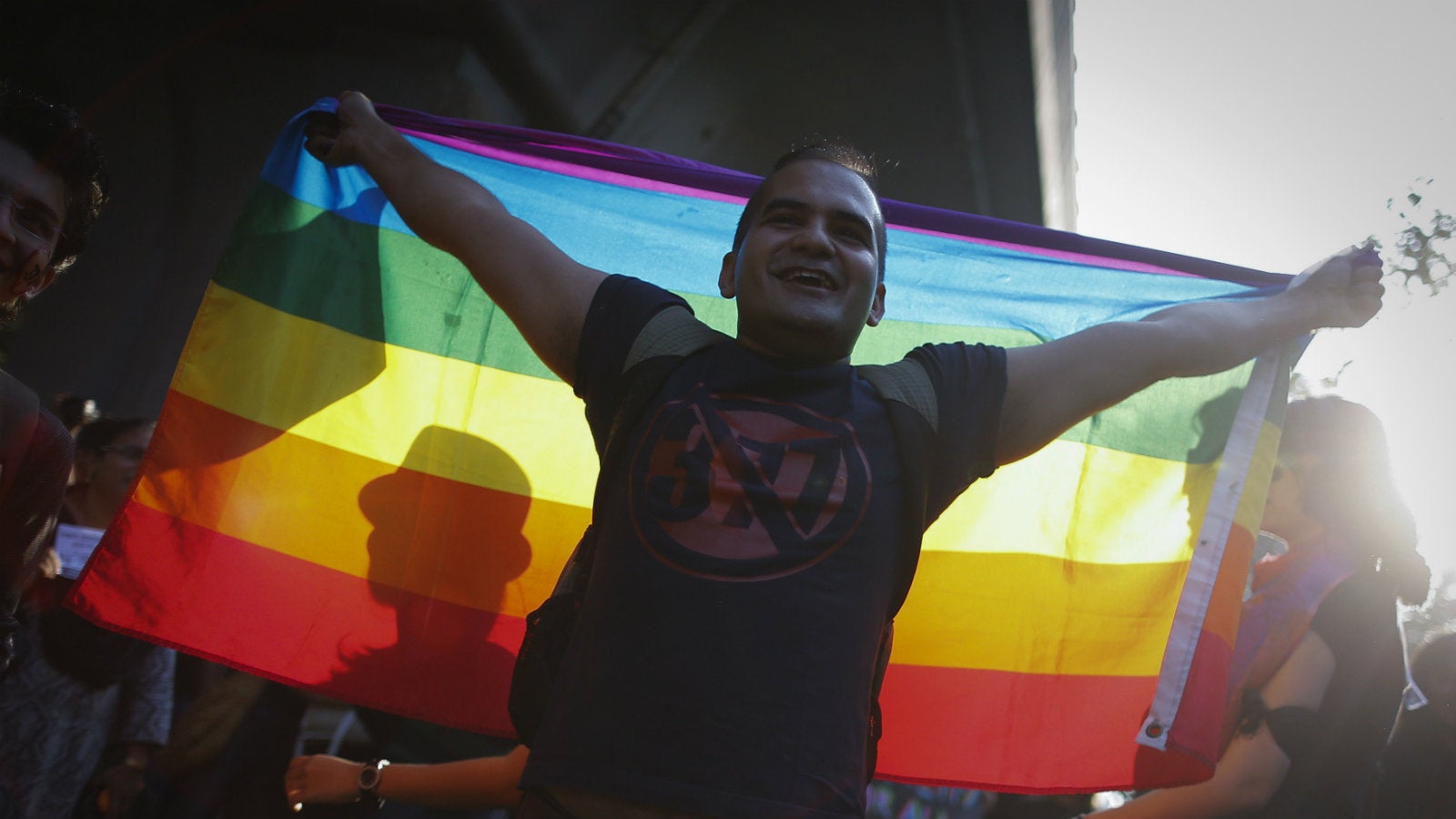“Not an aberration but a variation”: What India’s supreme court judges have said about homosexuality
India’s supreme court, hearing petitions against a 19th century law criminalising homosexuality, has raised the hopes of the country’s LGBTQ community with some pointed remarks on the matter.


India’s supreme court, hearing petitions against a 19th century law criminalising homosexuality, has raised the hopes of the country’s LGBTQ community with some pointed remarks on the matter.
Last week, a bench consisting of chief justice Dipak Misra and justices DY Chandrachud, AM Khanwilkar, Indu Malhotra, and Rohinton Fali Nariman began hearing the matter on section 377 of the Indian Penal Code. Over the past few days, it has punched several holes in the arguments of the law’s backers who have cited reasons like the risk of sexually-transmitted diseases and protection of India’s social fabric to make their case.
Here are some of the court’s key observations:
“This community feels inhibited to go for medical aid due to prejudices against them. Because of family pressures, societal pressures etc. they are forced to marry opposite sex and it leads to bi-sexuality and other mental trauma.”—Justice Indu Malhotra, July 12.
“It is not human beings alone who indulge in homosexual acts, many animals also show homosexual behaviour; it is not an aberration but a variation.”—Justice Indu Malhotra, July 12.
“Our focus is not only on the sexual act, but the relationship between two consenting adults and the manifestation of their rights under Articles 14 and 21…we are dwelling on the nature of relationship and not marriage…we want the relationship to be protected under fundamental rights and to not suffer moral policing.”—Justice DY Chandrachud, July 11.
“The cause of sexually transmitted diseases is not sexual intercourse, but unprotected sexual intercourse. A village woman may get the disease from her husband, who is a migrant worker. This way would you now want to make sexual intercourse itself a crime?”—Justice DY Chandrachud, July 17.
“If the ‘order of nature’ should mean only act that results in procreation, will sex that does not lead to reproduction be against the ‘order of nature’?”—Justice Rohinton Fali Nariman, July 17.
“If you licence prostitution, you control it. If you kick it under the carpet owing to some Victorian-era morality, it will only lead to health concerns. All prohibition is wrong.”—Justice Rohinton Fali Nariman, July 17.
“The whole object of fundamental rights is to give court power to strike down laws which a majoritarian government, swung by votes, will not repeal. We don’t wait for majoritarian governments to repeal laws. If a law is unconstitutional, it is the duty of the court to strike it down.”—Justice Rohinton Fali Nariman, July 17.
The colonial-era section 377 states that intercourse “against the order of nature” is punishable with imprisonment of up to 10 years and a fine. In 2009, a landmark judgment by the Delhi high court labelled it a violation of fundamental rights, but in 2013, the supreme court overturned the verdict. Since then, LGBTQ activists have been pushing for justice. High-profile names, including restaurateur Ritu Dalmia and hotelier Keshav Suri, are among those who have filed petitions against the archaic stricture.
Now, the supreme court is debating the constitutional validity of section 377. The Narendra Modi government, on its part, has left the decision to the judges’ “wisdom.” On July 17, the court said it would reserve its verdict, and asked all petitioners to hand in written submissions of their arguments by July 20.